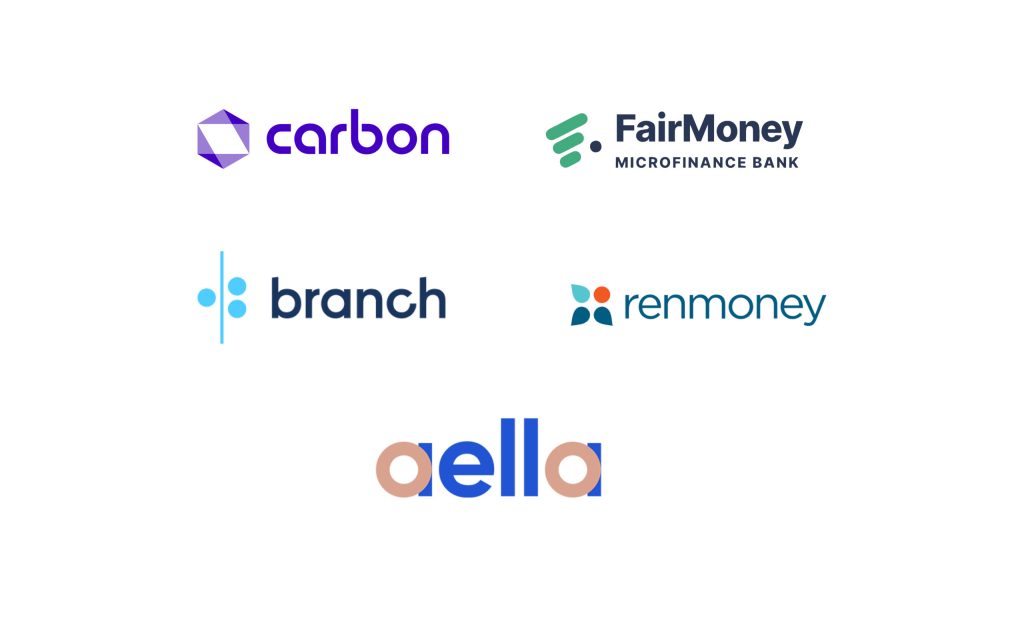The pursuit of higher education often comes with a hefty price tag, prompting many students to rely on student loans to finance their studies. However, the process of obtaining and managing these loans can be complex and overwhelming. Understanding the crucial do’s and don’ts of acquiring student loans is paramount to making informed financial decisions and ensuring a healthy financial future.
In this comprehensive guide, we will delve into the essential aspects of how you can secure student loans and provide crucial insights into responsible borrowing.
Types of student loans
Student loans primarily come in two forms: federal loans and private loans.
1. Federal student loans
These loans are funded by the federal government and offer advantages such as fixed interest rates, income-driven repayment plans, and potential loan forgiveness programs. Subsidized loans are need-based, where the government covers the interest while the student is in school. Unsubsidized loans are available to all students but accrue interest from the disbursement date.
2. Private student loans
Offered by banks, credit unions, or online lenders, private loans have varying terms and conditions. Interest rates may be fixed or variable, and they might not offer the same borrower protections as federal loans.
Do’s of getting student loans

1. Maximize federal loan options
Unlocking the full potential of your educational funding involves strategic choices, and maximizing federal loan options is a key step in securing favorable terms. Federal loans typically offer more advantageous conditions compared to private alternatives. Begin by exploring subsidized loans, a prudent choice as they refrain from accruing interest during your academic journey.
Delve into the array of federal loan options available before contemplating private lenders, ensuring you exhaust all possibilities for government-backed financial support. This approach not only shields you from potentially higher interest rates associated with private loans but also provides a safety net of flexible repayment plans.
By strategically considering federal loan options, you pave the way for a financially manageable education, empowering you to focus on your studies without the undue stress of unfavorable loan terms. In essence, maximizing federal loan options is a strategic maneuver towards an economically sound and successful academic endeavor.
2. Complete the FAFSA early
Initiating your educational journey by completing the Free Application for Federal Student Aid (FAFSA) early is a strategic move that unlocks various financial opportunities. The FAFSA serves as the entryway to federal grants, work-study programs, and loans, forming the backbone of financial assistance for students. Submitting this application ahead of deadlines enhances your likelihood of securing essential aid for your education.
By acting promptly, you not only demonstrate your commitment to academic pursuits but also position yourself for a comprehensive financial aid package. This proactive approach allows for a smoother and more organized financial planning process, giving you ample time to explore additional scholarship opportunities and make informed decisions about your educational investment.
Completing the FAFSA early is not just a task; it is a pivotal step towards having a financially sound and successful educational journey.
3. Thoroughly review loan terms
Before committing to any loan, embark on a thorough examination of its terms and conditions. This essential step encompasses a detailed understanding of crucial elements such as interest rates, grace periods, repayment plans, and potential fees or penalties.
Take the time to compare multiple loan offers, considering each intricacy to make a well-informed decision. This meticulous review not only safeguards you from unexpected financial surprises but also empowers you to choose a loan aligned with your financial goals and capabilities.
By delving into these specifics, you equip yourself with a comprehensive grasp of the financial commitment you are about to undertake. A thoughtful and thorough review of loan terms is your proactive approach to financial clarity, ensuring that your journey with a loan is marked by transparency, informed choices, and long-term financial well-being.
4. Borrow wisely
When navigating the realm of student loans, adopting a strategy of borrowing wisely is paramount for long-term financial wellness. Limit your borrowing to the essential components – covering tuition, fees, and necessary living expenses. By adhering to a disciplined approach and borrowing only what is absolutely necessary, you safeguard yourself from unnecessary debt burdens in the future.
This judicious borrowing not only reduces the overall financial strain but also ensures that you are not burdened with excessive repayments post-graduation. Consider your educational investment as a careful financial decision, and opt for the minimum amount required to support your academic journey.
This approach sets the stage for a more manageable and stress-free post-graduation financial scenario, allowing you to focus on your career without the looming pressure of excessive student debt. Borrowing wisely is a strategic move towards achieving a balanced and financially sound educational experience.
5. Keep track of borrowing
Maintaining a meticulous record of your borrowing activities is a fundamental aspect of financial responsibility during your academic journey. Keep detailed records that include borrowed amounts, the lenders involved, applicable interest rates, and the repayment schedules.
Utilize online tools or spreadsheets to organize this crucial information systematically. By doing so, you ensure a clear and comprehensive overview of your financial obligations. These records serve as a valuable resource for tracking your repayment progress, avoiding missed deadlines, and understanding the overall impact on your financial landscape. Whether through specialized apps or traditional spreadsheets, technology provides accessible and user-friendly means to stay on top of your borrowing.
This organized approach not only fosters financial transparency but also empowers you to make informed decisions regarding your future financial commitments. Keeping track of your borrowing is a proactive measure that contributes to financial clarity and responsible fiscal management throughout your academic journey.
Don’ts of getting student loans

1. Ignoring repayment obligations
Neglecting or being oblivious to loan repayment obligations can have far-reaching consequences. It is imperative to fully comprehend the terms and conditions governing the repayment process. Ignoring these details may lead to default, causing significant harm to your credit scores and triggering severe repercussions.
To avoid such pitfalls, make a concerted effort to understand the repayment terms, including deadlines, interest rates, and any associated fees. Create a repayment plan that aligns with your financial capabilities, and consider setting up reminders or utilizing online tools to stay informed about due dates.
Proactive awareness not only safeguards your creditworthiness but also positions you to manage your finances responsibly. By prioritizing repayment obligations and staying informed, you foster a healthy financial future, steering clear of the detrimental consequences associated with defaulting on your obligations.
2. Disregarding interest rates
Exercise caution, especially with private loans, by not overlooking the impact of interest rates. Disregarding these rates can have substantial consequences, potentially leading to a significant increase in the total amount repaid. High-interest rates, particularly common in private loans, can escalate your financial obligations over time. Prioritize a comprehensive understanding of the interest rates attached to your loans, factoring them into your financial planning.
Recognizing the influence of interest rates is a proactive measure in mitigating potential financial strain and ensuring a more manageable repayment process. By remaining vigilant, you empower yourself to make informed decisions about your borrowing, opting for arrangements that align with your long-term financial goals. Staying attentive to interest rates is a pivotal aspect of responsible loan management, contributing to your overall financial stability.
3. Overlooking alternative financial aid
A common pitfall is solely relying on loans without considering alternative financial aid avenues such as scholarships, grants, or work-study programs. Overlooking these options can lead to unnecessary borrowing and financial strain after graduation. It’s crucial to explore diverse sources of financial support to minimize the burden of loans.
Scholarships and grants, in particular, offer funds that don’t require repayment, lightening the financial load in the long run. Work-study programs provide an opportunity to earn while gaining valuable experience. By diversifying your financial aid portfolio, you create a well-rounded strategy that reduces the reliance on loans, fostering a more sustainable and manageable financial journey through your academic pursuits.
Recognizing and embracing alternative financial aid is a strategic move towards a financially sound and less debt-dependent post-graduation scenario.
4. Borrowing without planning for repayment
Embarking on borrowing without a well-defined repayment plan can pave the way for financial distress. It is imperative to consider not only the present need but also your future income prospects. Before borrowing, create a comprehensive strategy outlining how you intend to manage repayment. Evaluate potential career paths, salary expectations, and the overall financial landscape post-graduation.
Factor in the loan amount, interest rates, and other associated costs to formulate a realistic plan. By strategically aligning borrowing with anticipated income and diligently planning for repayment, you proactively mitigate the risk of financial strain.
This foresighted approach ensures that your academic investment remains financially sustainable, fostering a smoother transition into the post-graduation phase. Borrowing with a well-thought-out repayment strategy is a fundamental step towards achieving long-term financial success.
5. Missing Deadlines
Adhering to deadlines is paramount in the realm of student loans, encompassing the timely submission of loan applications, deferments, and repayments. Missing these crucial deadlines can result in penalties and adversely affect your loan status. It is essential to establish a meticulous timeline that aligns with the various stages of your academic and financial journey.
Promptly submit loan applications, meet deferment requirements when necessary, and ensure on-time repayments to prevent the accrual of penalties. Adopting a proactive approach to time management in your loan responsibilities safeguards your financial standing and preserves a positive loan status.
Keeping in mind and respecting the deadlines is a fundamental aspect of responsible loan management, contributing to the overall success of your academic and financial endeavors.
How to manage student loan debt
Repayment strategies

1. Income-driven repayment plans: Federal loans introduce income-driven plans, adapting payments based on individual financial situations. This vital flexibility ensures borrowers can effectively manage their student debt without compromising overall financial stability. By tailoring payments to income levels, this strategy fosters a sustainable and affordable approach to loan repayment, aligning with borrowers’ financial realities.
2. Loan consolidation and refinancing: Simplify your repayment journey by consolidating multiple loans or exploring refinancing options with lower interest rates. This streamlined approach not only simplifies monthly payments but also holds the potential to significantly reduce overall interest costs. Borrowers benefit from greater financial flexibility, making this strategy a prudent choice for managing student debt effectively.
3. Early or additional payments: Seize control of your loan repayment trajectory by implementing early or additional payments. This proactive strategy empowers borrowers to expedite their loan payoff, resulting in a substantial reduction in total interest over the repayment period. Beyond financial savings, this approach positions individuals on a faster track to achieving financial freedom, making it a smart and strategic choice in managing student loans.
Financial health and responsibility
1. Budgeting and financial literacy: Cultivating budgeting skills and enhancing financial literacy empowers borrowers to make informed decisions and effectively manage their finances. A well-crafted budget serves as a roadmap, providing a clear overview of income and expenses, fostering financial responsibility and informed decision-making. By understanding financial nuances, borrowers can optimize their resources, ensuring a sustainable financial future.
2. Emergency fund creation: Beyond budgeting, establishing an emergency fund acts as a crucial safety net, significantly reducing the need for additional borrowing in unforeseen circumstances. This financial cushion not only safeguards against unexpected expenses but also minimizes the overall financial strain on borrowers, contributing to a more secure, resilient, and responsible financial future. The foresight in creating an emergency fund demonstrates financial prudence, offering peace of mind in the face of unexpected challenges.
Conclusion
Acquiring student loans is a significant decision with lasting financial implications. By adhering to the outlined do’s and avoiding the listed don’ts, students can approach student loans responsibly, minimize debt, and achieve financial stability. Balancing the need for educational funding with the avoidance of unnecessary debt is crucial for a successful financial future. Understanding loan terms, borrowing judiciously, and effectively managing debt post-graduation are pivotal steps in ensuring long-term financial well-being.








